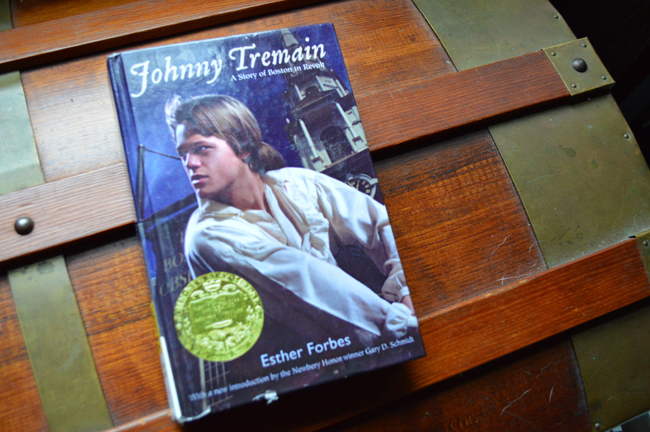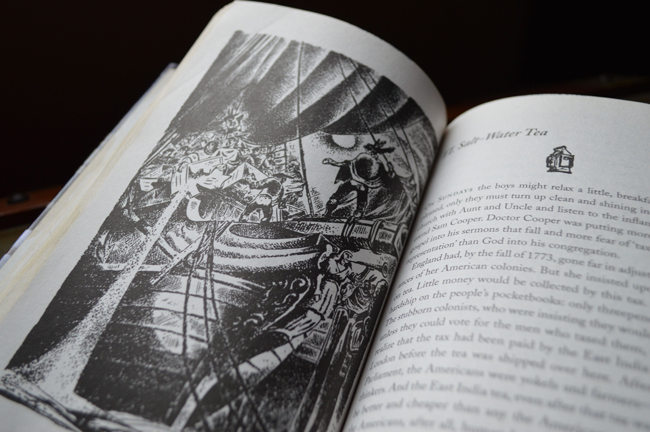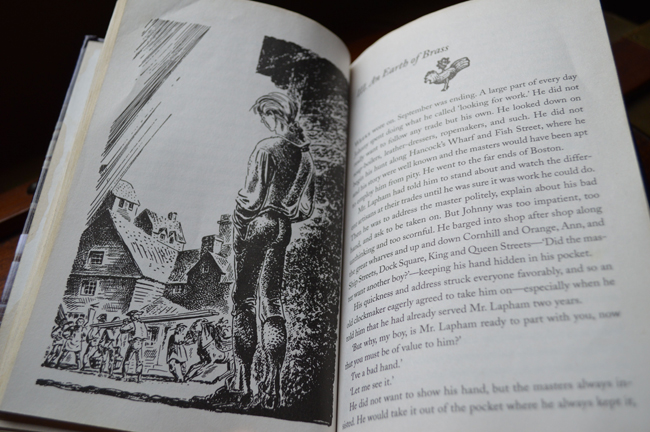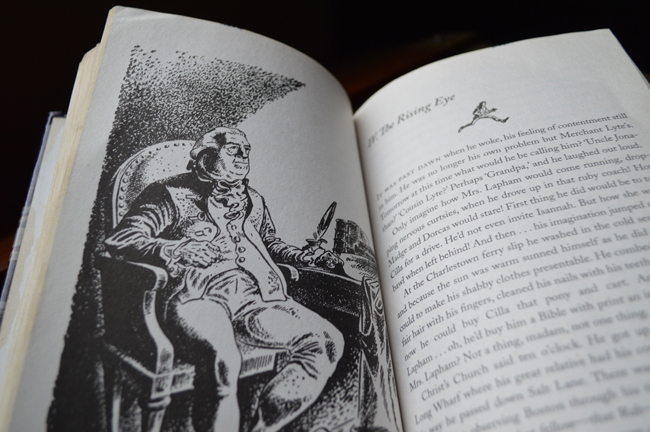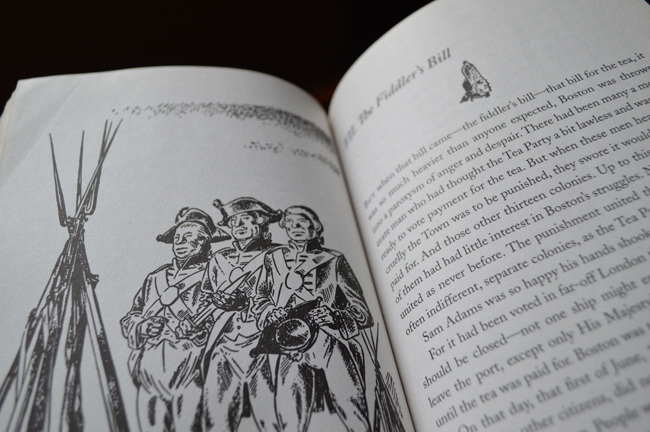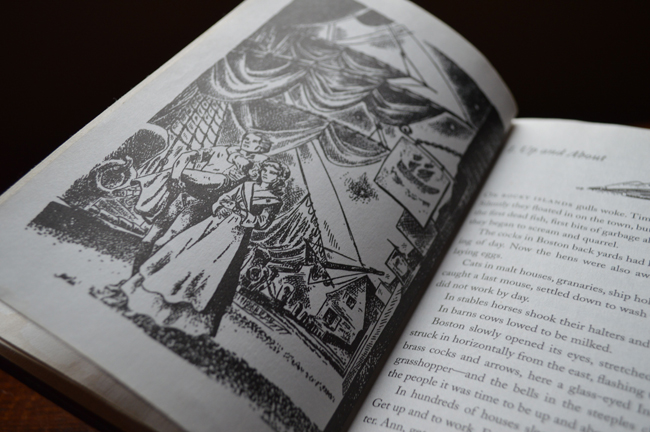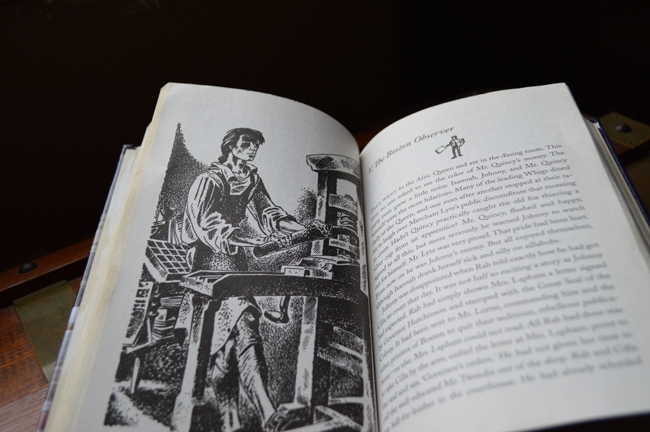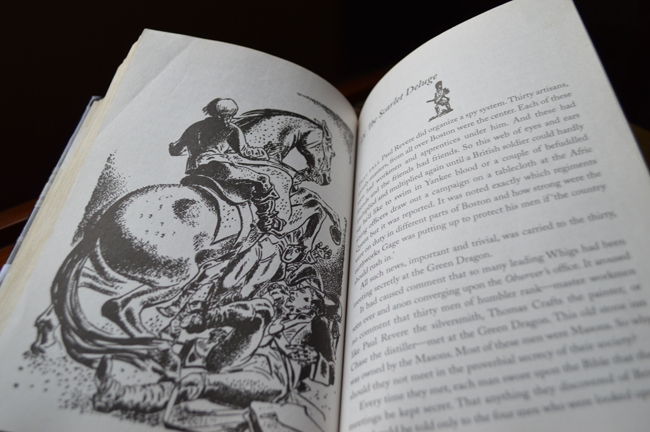The 1944 Newbery winner Johnny Tremain by Esther Hoskins Forbes came at the exact time that I’ve been helping Evan’s 10th graders study the American Revolution. I wanted to get 65 copies of the book and make them all read about this Boston silver smith who at their age got wrapped up in running messages for patriots in a story that runs from the Boston Massacre to Lexington and Concord. (And for those of you who haven’t been creating curriculum on the “Road to Revolution” Unit, that’s about 1770 to 1775.) It was definitely one of the best Newberies so far, which is likely why they made a movie out of it a decade later.
What I liked. As I was struggling to help make the events leading up to the American Revolution come alive with maps and timelines and power points, I especially appreciated the power of historical fiction that Forbes captures in this delightful book. We get to really understand just how strange it would be for British soldiers to be living in Boston as uneasy cousins, there to protect themselves and the colonists. There is violence and friendship, betrayal and love. Not all loyalists are bad and not all whigs are particularly good.
What was interesting. I was surprised at the complexity of the characters in Johnny Tremain. Johnny himself has some serious issues with pride that are smoothed by the end of the story, but not really gone—probably true to life for most 14 to 16 year olds. The rest of the cast of characters have their own fatal flaws to work through, and spoiler alert, this war book has some of our favorites die in battle.
What were some limitations. Since I happened to be studying all things American Revolution, I found the book fairly easy to situate in the wider context, but it might have been a little more challenging if you hadn’t. I think that epilogues in historical fiction that give you a rundown of who was a real character (John & Samuel Adams, Paul Revere) and who was a creation for the book (Johnny Tremain & Rab) and how the story fits in with the broad narrative of history are helpful. But maybe that wasn’t common practice in the 1940s.
Why I think it’s a Newbery. Johnny Tremain is the epitome of a patriotic book, and at the end of WWII, I think it was particularly well received, as the narrative of an American War hero would strike a common chord with adults and children. This is not unlike why I think that Daniel Boone (or the Matchlock Gun) won a few years before, but Johnny Tremain is a much, much stronger (and more readable) book than Boone (although the illustrations in Boone are pretty amazing), and a much more flushed out novel than either Boone or Matchlock Gun.
Similarity to other Newbery winners. The beginning scenes where Johnny is working as a silver smith before his accident forcing him to become a messenger boy reminded me a lot of the tale of our young copper smith apprentice Young Fu. They both have dead fathers, mothers who get them the jobs, and annoying other apprentices that they mistreat, which nearly becomes their undoing. They both have a wise master who is interested in their character development as well as their smithing skills, and a great city to explore and make fine metal work for important people as they grow into manhood.
What it teaches me as a writer. Johnny Tremain is a good lesson in allowing your characters to sit with their flaws. Johnny learns and seems to forget humility and patience at such an alarming rate that sometimes I wondered if Forbes was trying to say that it’s ok that Johnny was so arrogant. It wasn’t, really of course; it creates all sorts of problems for him. But I think one of the ways that I want to shield my characters from harm is by letting them learn quickly, so they don’t really have to sit in their own mess too long. But you still like Johnny, even while you shake your head and think, “Don’t say that Johnny!”
Have you read Johnny Tremain? What are your favorite American Revolution books?
*Note* This post contains Amazon affiliate links, which means if you were to buy a book, I’d get a tiny commission at no cost to you. Thanks for supporting Stories & Thyme!*
